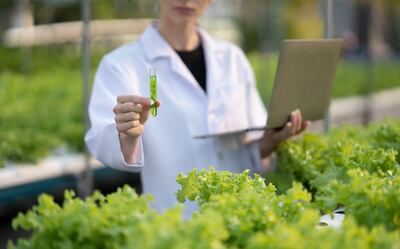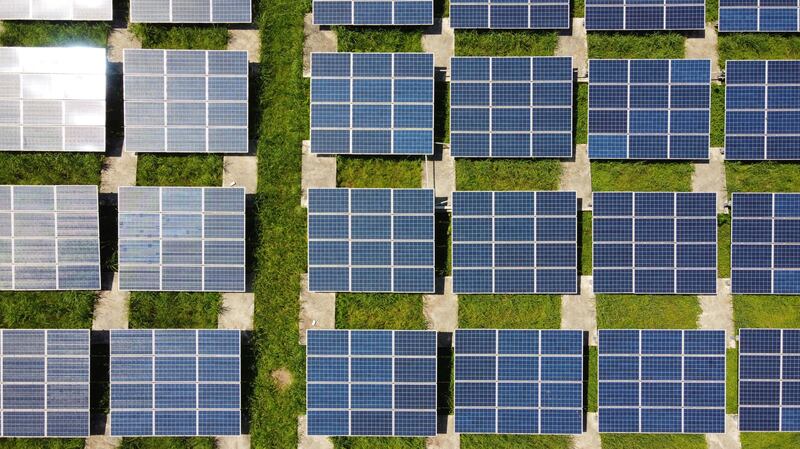Climate change poses one of the most significant threats to our planet, impacting ecosystems, weather patterns, and human societies. As the consequences of climate change become increasingly apparent, the urgency to address this global challenge has never been greater.
During Cop28, the Climate Action Innovation Zone from December 4 to 8 at the Madinat Jumeirah Conference Centre in Dubai, will showcase how innovation, with its transformative power, emerges as a crucial solution in the fight against climate change.
Innovation can reshape how we interact with the environment through technological advancements, sustainable practices and a shift towards circular and adaptive systems. Some critical themes that will be addressed by political, business and country leaders present at the Innovation Zones flagship events and on the Climate Action Stage include innovative solutions across the energy, agriculture, finance and technology sectors.
Renewable energy
One of the primary ways innovation addresses climate change is through technological advancements. Breakthroughs in renewable energy sources, such as solar, wind and hydropower, have paved the way for cleaner and more sustainable alternatives to fossil fuels.
The efficiency of renewable energy systems has increased, making them more accessible and affordable. Integrating smart grids, energy storage solutions and electric vehicles exemplifies how innovation can revolutionise our energy infrastructure, reducing carbon emissions and dependence on finite resources. These innovative solutions have enabled renewable energy to become the fastest-growing energy source in the world, with projected record levels of development and installation of renewable electricity technologies over the next few years.
Green building technologies
Innovation extends its reach to the construction industry through green building technologies. Sustainable architecture and design focus on creating structures that minimise environmental impact, optimise energy efficiency and promote eco-friendly practices. Materials like recycled steel and concrete and energy-efficient insulation and design contribute to constructing buildings with lower carbon footprints. Meanwhile, innovative solutions, such as green roofs and smart building systems, further enhance energy efficiency, providing sustainable alternatives for the construction and real estate sectors.
Circular economy
The concept of a circular economy represents a paradigm shift in how we produce, consume and dispose of goods. Instead of the traditional linear model of take, make and dispose, a circular economy emphasises reducing waste by reusing, recycling and regenerating resources. Innovation plays a pivotal role in developing and implementing circular economy practices. Technologies that enable efficient recycling, waste-to-energy processes, and sustainable product design contribute to minimising environmental impact and fostering a more sustainable and resilient economy.

Precision agriculture and sustainable food systems
Agriculture is both a contributor to and a victim of climate change. Precision agriculture, enabled by innovation in data analytics, sensors and automation, offers a solution to reduce the environmental impact of farming. By optimising resource use, minimising waste, and employing sustainable farming practices, precision agriculture contributes to mitigating the carbon footprint of food production. Innovations in alternative protein sources, vertical farming and agroecology further address the challenges of feeding a growing global population while minimising the environmental impact of agriculture.
Climate adaptation technologies
In addition to mitigation strategies, innovation also plays a critical role in developing technologies for climate adaptation. These technologies help communities cope with the impacts of climate change, such as rising sea levels, extreme weather events, and changing precipitation patterns. Flood-resistant infrastructure, early warning systems and resilient urban planning exemplify how innovation can enhance our ability to adapt to a changing climate, protecting vulnerable communities and ecosystems.
The Climate Action Innovation Zone helps harness the creative power of innovation. Thousands of leaders from governments, businesses, cities and NGOs will collaborate to comprehensively support and invest in innovative solutions that address climate change. This free-to-attend event will enable everyone to discover and learn how innovation in mitigating and adapting to climate change has the potential to usher in a sustainable future.









